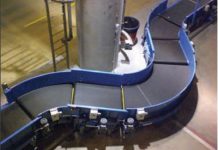
A recent study from Ford Motor Co. in Dearborn and sociologist Jess Carbino has found that driver-assist technology can help curb stressful backseat driving.
The study found that 68 percent of drivers believe backseat driving behavior will decrease because of driver-assist technology. Technology that informs drivers of blind spot information and cross traffic as well as pre-collision assist and automatic emergency braking can help reduce the risk of collisions and build confidence in driving situations while allowing the driver to remain in control.
“For a lot of drivers, constantly getting advice from passengers is more than just annoying. It’s stressful,” says Carbino. “The Ford Co-Pilot360 helps encourage trust during the drive and can help create a more relaxed, collaborative atmosphere in the car.”
The study showed that backseat driving can cause in-vehicle relationships to suffer while driver-assist technology takes some navigating tasks away. Passengers can focus on each other for a more enjoyable ride.
“Certainly, the intent of Ford Co-Pilot360 Technology was not to eliminate backseat driving,” says Chris Billman, engineering manager of Ford Co-Pilot360. “But hey, if we can help in that way too, that’s great.”











